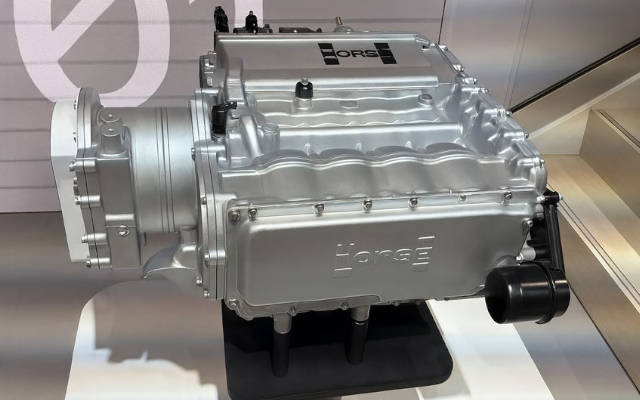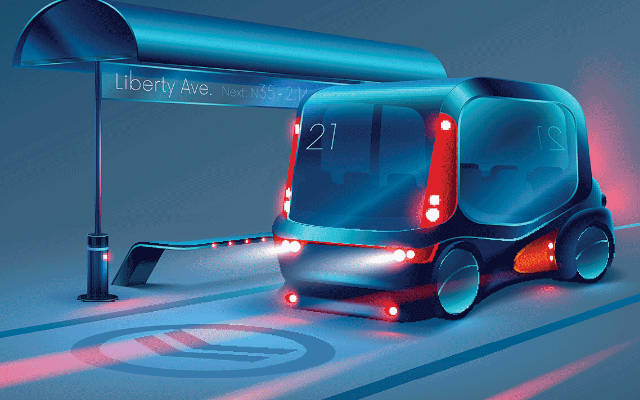 EDITOR'S PICK
EDITOR'S PICK
Why Europeans Build Wealth on €30,000 Salaries While Americans Go Broke on $100,000
24 Sep 2025 | Synopsis
 Europeans on much lower salaries can build wealth more effectively than Americans on higher salaries due to socialized or capped big-ticket expenses. The article highlights that Europeans benefit from minimal costs for healthcare, education, and childcare. Additionally, affordable public transport reduces the need for expensive car ownership, and legally mandated paid leave provides a significant, guaranteed financial benefit not common in the U.S
Europeans on much lower salaries can build wealth more effectively than Americans on higher salaries due to socialized or capped big-ticket expenses. The article highlights that Europeans benefit from minimal costs for healthcare, education, and childcare. Additionally, affordable public transport reduces the need for expensive car ownership, and legally mandated paid leave provides a significant, guaranteed financial benefit not common in the U.SThe West is Driving in the Rearview Mirror: A Wake-Up Call from the Electrotech Revolution
24 Sep 2025 | Synopsis
 Kingsmill Bond argues the West is deluding itself about the energy transition. The "electrotech revolution" led by solar, batteries, and EVs is already here, advancing exponentially, and is cheaper than fossil fuels. While emerging markets are embracing this, the West risks being left behind by its outdated assumptions and a linear mindset toward change.
Kingsmill Bond argues the West is deluding itself about the energy transition. The "electrotech revolution" led by solar, batteries, and EVs is already here, advancing exponentially, and is cheaper than fossil fuels. While emerging markets are embracing this, the West risks being left behind by its outdated assumptions and a linear mindset toward change.XCharge NA Is Now Leasing DC Fast Chargers To Small Businesses
24 Sep 2025 | Synopsis
 XCharge North America has partnered with Ascentium Capital to offer a leasing program for DC fast chargers, aimed at small businesses. This program allows businesses to install chargers, like the GridLink and C6 models, for an affordable monthly rate starting at $800, removing the need for a large upfront investment. The leasing package includes installation, equipment, warranties, and maintenance, and lets the business keep all the charging revenue.
XCharge North America has partnered with Ascentium Capital to offer a leasing program for DC fast chargers, aimed at small businesses. This program allows businesses to install chargers, like the GridLink and C6 models, for an affordable monthly rate starting at $800, removing the need for a large upfront investment. The leasing package includes installation, equipment, warranties, and maintenance, and lets the business keep all the charging revenue.Realistic Assessment: Horse Powertrain's C15 Engine and the Future of EV
22 Sep 2025 | Synopsis
 Horse Powertrain's C15 is a compact, Euro 7-compliant gasoline generator designed for extended-range EVs. It activates only when battery charge drops, offering 70 kW for sedans and 120 kW for larger vehicles. While efficient, it still emits 120–140 g CO₂/km when active. Backed by Renault, Geely, and Aramco, Horse can mass-produce it—but OEM adoption is key. EREVs face pressure from falling battery costs and rising BEV capabilities.
Horse Powertrain's C15 is a compact, Euro 7-compliant gasoline generator designed for extended-range EVs. It activates only when battery charge drops, offering 70 kW for sedans and 120 kW for larger vehicles. While efficient, it still emits 120–140 g CO₂/km when active. Backed by Renault, Geely, and Aramco, Horse can mass-produce it—but OEM adoption is key. EREVs face pressure from falling battery costs and rising BEV capabilities.In Just 15 Years, No One Will Own an Electric Car - Here's What Will Replace Them Instead
21 Sep 2025 | Synopsis
 EVs are central to a coming shift in mobility: by 2040, personal electric car ownership may disappear as automakers pivot to subscription-based, software-driven models. EVs will serve as platforms for autonomous fleets, shared transport, and tiered digital services. Younger users prefer access over ownership, and manufacturers are redesigning vehicles as connected devices - raising concerns over repair rights, data control, and user autonomy.
EVs are central to a coming shift in mobility: by 2040, personal electric car ownership may disappear as automakers pivot to subscription-based, software-driven models. EVs will serve as platforms for autonomous fleets, shared transport, and tiered digital services. Younger users prefer access over ownership, and manufacturers are redesigning vehicles as connected devices - raising concerns over repair rights, data control, and user autonomy.
 EVWorld Exclusive
EVWorld Exclusive
Horse Powertrain: The Hybrid Trojan Horse
17 Oct 2025 |  Horse Powertrain, a joint venture by Renault, Geely, and Aramco, offers compact hybrid engines like the C1 to retrofit EV platforms. Designed as range extenders, these engines run on multiple fuels and meet Euro 7 standards. Though marketed as green tech, their real-world impact is debated - especially as studies show PHEVs are rarely charged. Horse may be a transitional solution, but 500-mile EVs are poised to dominate long-term.
Horse Powertrain, a joint venture by Renault, Geely, and Aramco, offers compact hybrid engines like the C1 to retrofit EV platforms. Designed as range extenders, these engines run on multiple fuels and meet Euro 7 standards. Though marketed as green tech, their real-world impact is debated - especially as studies show PHEVs are rarely charged. Horse may be a transitional solution, but 500-mile EVs are poised to dominate long-term.
Sticker Shock and Stagnant Pay: Why New Cars Are Slipping Out of Reach
17 Oct 2025 |  New car prices have outpaced wage growth, making ownership increasingly unaffordable. Even Ford's $30K EV pickup and other sub-$30K models may remain out of reach for many without incentives or financing reform. With monthly payments rising and federal credits phasing out, the affordability gap is reshaping the auto market. Shared mobility and micro-EVs may offer alternatives, but structural change is needed to restore access.
New car prices have outpaced wage growth, making ownership increasingly unaffordable. Even Ford's $30K EV pickup and other sub-$30K models may remain out of reach for many without incentives or financing reform. With monthly payments rising and federal credits phasing out, the affordability gap is reshaping the auto market. Shared mobility and micro-EVs may offer alternatives, but structural change is needed to restore access.
Toyota FT-Me: Shared Mobility Concept with Big Implications
17 Oct 2025 |  Toyota's FT-Me is a two-seat electric microcar designed for shared urban mobility, not just teens. Developed with UK government support, it features hand-only controls, solar panels, and a lightweight frame. Aimed at car clubs and last-mile use, it could offer affordable, accessible transport with low emissions. With steady utilization and supportive policy, FT-Me may become a viable, sustainable option in the UK's evolving mobility landscape.
Toyota's FT-Me is a two-seat electric microcar designed for shared urban mobility, not just teens. Developed with UK government support, it features hand-only controls, solar panels, and a lightweight frame. Aimed at car clubs and last-mile use, it could offer affordable, accessible transport with low emissions. With steady utilization and supportive policy, FT-Me may become a viable, sustainable option in the UK's evolving mobility landscape.
Creative Destruction vs. Fossil Retrenchment: Why Project 2025 Risks Leaving America Behind
16 Oct 2025 |  Project 2025 protects fossil fuel incumbents by dismantling Biden-era clean energy policies. Nobel economist Philippe Aghion argues that climate progress depends on creative destruction - letting green innovators outcompete legacy polluters. The U.S. risks falling behind as global markets embrace clean tech. Even its passport has slipped from the top 10. Innovation, not retrenchment, is the path forward
Project 2025 protects fossil fuel incumbents by dismantling Biden-era clean energy policies. Nobel economist Philippe Aghion argues that climate progress depends on creative destruction - letting green innovators outcompete legacy polluters. The U.S. risks falling behind as global markets embrace clean tech. Even its passport has slipped from the top 10. Innovation, not retrenchment, is the path forward
Buick Electra E5: China-Built EV Poised for U.S. Launch
16 Oct 2025 |  Buick's Electra E5, built in China by SAIC-GM, is set to become GM's first imported EV for the U.S. market. Though its launch was delayed indefinitely in 2024, a tentative 2026 rollout remains part of GM's electrification roadmap. With Ultium battery tech, strong performance specs, and positive reception in China, the Electra E5 represents a strategic shift in global EV sourcing and branding.
Buick's Electra E5, built in China by SAIC-GM, is set to become GM's first imported EV for the U.S. market. Though its launch was delayed indefinitely in 2024, a tentative 2026 rollout remains part of GM's electrification roadmap. With Ultium battery tech, strong performance specs, and positive reception in China, the Electra E5 represents a strategic shift in global EV sourcing and branding.
SEARCH RSSTREAM
 55 New Postings In Past 24 Hours
55 New Postings In Past 24 Hours
Category:mobility
Region:Global
Date:17 Oct 2025
Category:mobility
Region:AsiaPacific
Date:17 Oct 2025
Category:finance
Region:NoAmerica
Date:17 Oct 2025
Category:mobility
Region:AsiaPacific
Date:17 Oct 2025
Category:mobility
Region:NoAmerica
Date:17 Oct 2025
Category:finance
Region:NoAmerica
Date:17 Oct 2025
Category:mobility
Region:Global
Date:17 Oct 2025
Category:energy
Region:NoAmerica
Date:17 Oct 2025
Category:mobility
Region:NoAmerica
Date:17 Oct 2025
Category:mobility
Region:Europe
Date:17 Oct 2025
Category:energy
Region:Global
Date:17 Oct 2025
Category:mobility
Region:Europe
Date:17 Oct 2025
Category:autonomy
Region:NoAmerica
Date:17 Oct 2025
Category:finance
Region:AsiaPacific
Date:17 Oct 2025
Category:finance
Region:NoAmerica
Date:17 Oct 2025
Category:finance
Region:NoAmerica
Date:17 Oct 2025
Category:mobility
Region:AsiaPacific
Date:17 Oct 2025
Category:environment
Region:Global
Date:17 Oct 2025
Category:mobility
Region:Europe
Date:17 Oct 2025
Category:energy
Region:AsiaPacific
Date:17 Oct 2025
